Understanding the lifespan of garage doors can be crucial in planning for maintenance, repairs, and eventual replacement.
The lifespan of garage doors varies significantly based on factors such as material, maintenance, usage, and climate conditions. On average, well-maintained garage doors can last anywhere between 15 to 30 years. However, certain materials like steel and fiberglass offer more durability, potentially extending this lifespan. To ensure you’re getting the most out of your garage door, understanding these factors in detail is crucial. This comprehensive guide will delve into the specifics of what influences a garage door’s longevity and how to maximize it.
Key takeaways:
- Garage doors can last between 15 to 30 years.
- Factors that affect lifespan include material, usage frequency, maintenance, quality of components, and weather conditions.
- Regular maintenance, including replacing worn-out parts and using lubricants, can extend the lifespan.
- Monitor the garage door’s function for any irregularities.
- Understand your garage door’s warranty to avoid unexpected expenses.
Typical Lifespan of a Garage Door
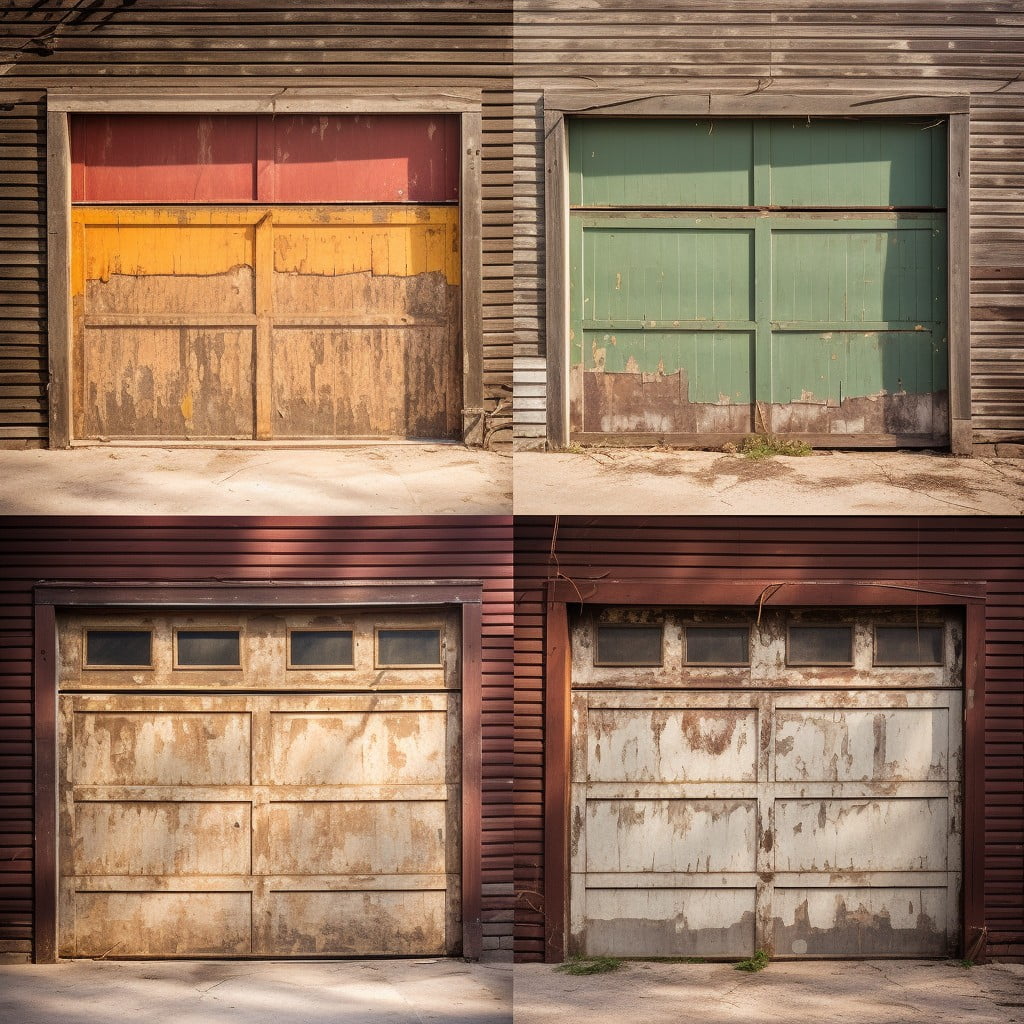
Generally, garage doors are built to last about 15 to 30 years. However, the actual lifespan depends on the quality of the material used, frequency and quality of maintenance, local climate conditions, and how often the door is used.
Steel doors can last for a lifetime, while wood doors might need replacement after 15 years. Aluminum doors can serve for about 20-25 years if properly maintained.
High-quality, well-maintained garage doors might exceed even the maximum expected lifespan. It’s beneficial to periodically check the door for any signs of wear and tear to avoid unnecessary damage and extend its life.
Factors That Affect Your Garage Door’s Life Span
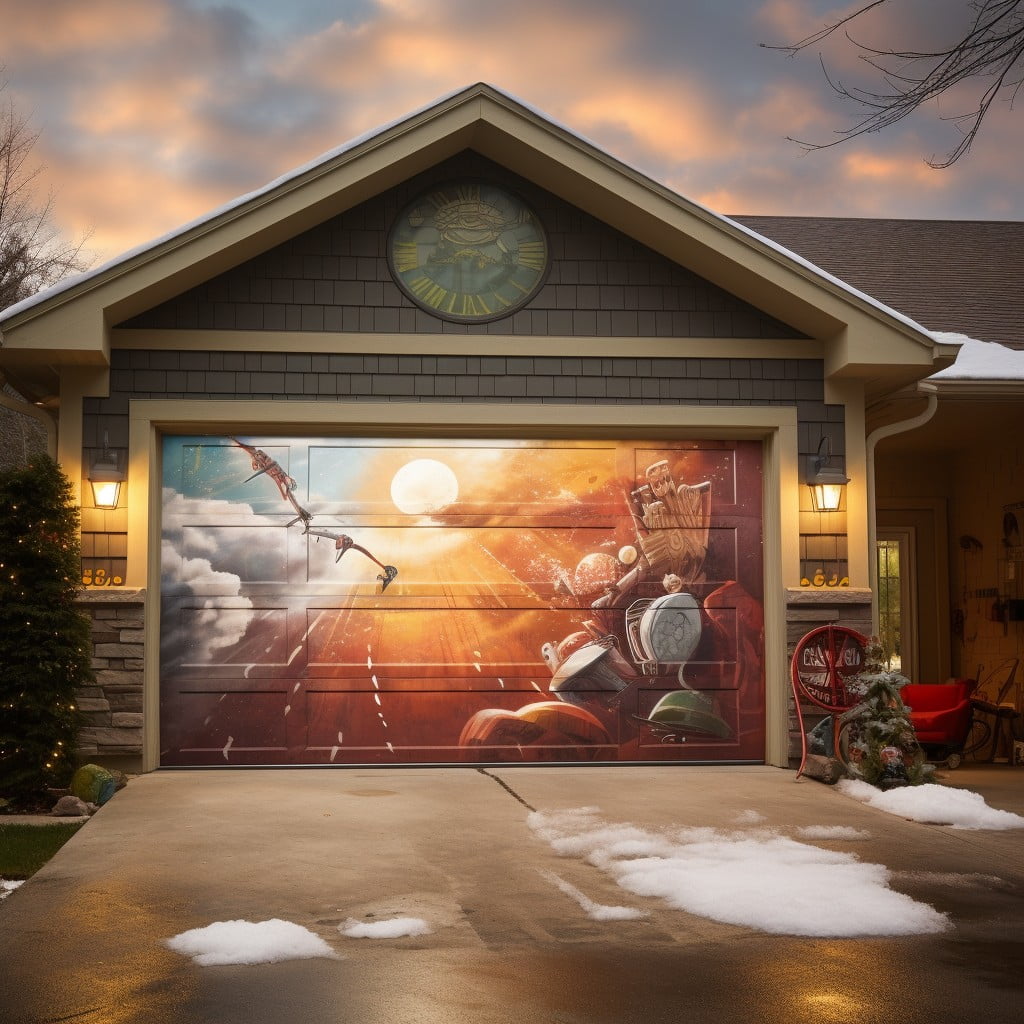
Various elements can significantly impact the duration of your garage door’s serviceable lifespan:
1. Material: High durability options like steel and aluminum are more endurance-focused compared to wood, which requires more regular maintenance and might not last as long.
2. Use frequency: If your garage door is raised and lowered frequently each day, it will naturally wear out faster than a door that isn’t heavily used.
3. Maintenance: Regular checks for functionality, lubrication, and fastening of moving parts can greatly prolong the door’s lifespan.
4. Quality of components: High-quality springs, corner brackets, and drums ensure the extended lifespan of your garage door. Inferior hardware could lead to premature breakdown.
5. Weather conditions: Severe climates with excessive rainfall, high humidity, or extremes of heat and cold can shorten the lifespan of garage doors, especially for wooden ones.
6. Proper installation: Incorrectly installed garage doors tend to face more problems and thus have a shorter lifespan. Trust professional installers for this important job.
Replace Door Parts and Use Garage Door Lubricant
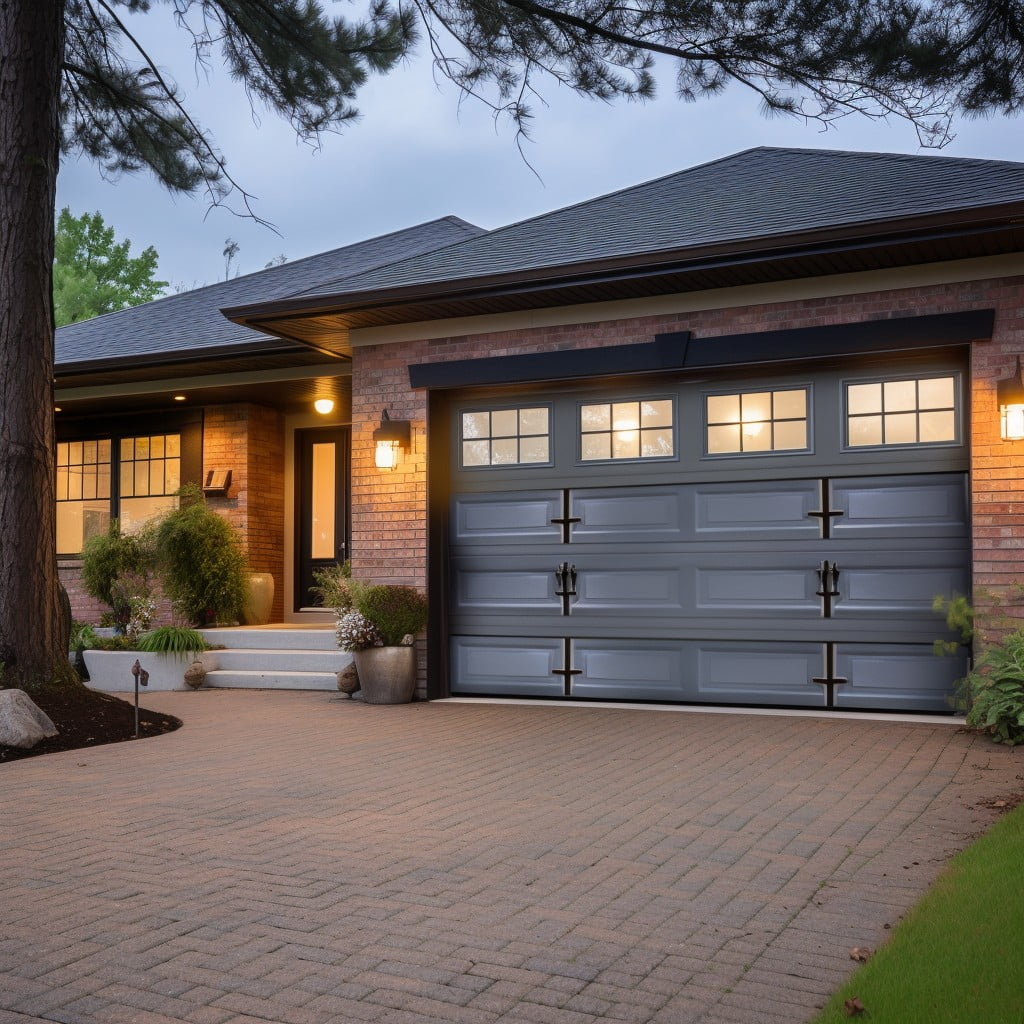
To maximize the durability of your garage door, it’s essential to conduct routine maintenance, which often includes replacing worn-out parts and using lubricants to ensure optimal performance.
1. Door Rollers: Typically made of steel or nylon, rollers are an essential part of your garage door. They need to be checked every year for any signs of wear and replaced if needed.
2. Springs: Both torsion and extension springs have a finite lifespan, often between 10,000 to 20,000 cycles. Monitor these closely, as they provide the necessary force to lift the door.
3. Cables: Running alongside your garage door, these bear a lot of tension. Over time, frayed, worn-out cables become a safety hazard and should be replaced promptly.
4. Hinges: These small components are crucial to door movement. Check for any damage or excessive wear and replace when necessary.
Lubricating reduces friction, wear and tear, thus prolonging the lifespan of your garage door. Use a high-quality garage door lubricant to grease up all moving parts, including rollers, springs, hinges, tracks and bearings. Avoid using an excessive amount, as this can attract dirt and other unwanted particles, causing damage over time. This small act of preventative maintenance can go a long way towards running your garage door smoothly and increasing its lifespan.
Monitor the Garage Door’s Function
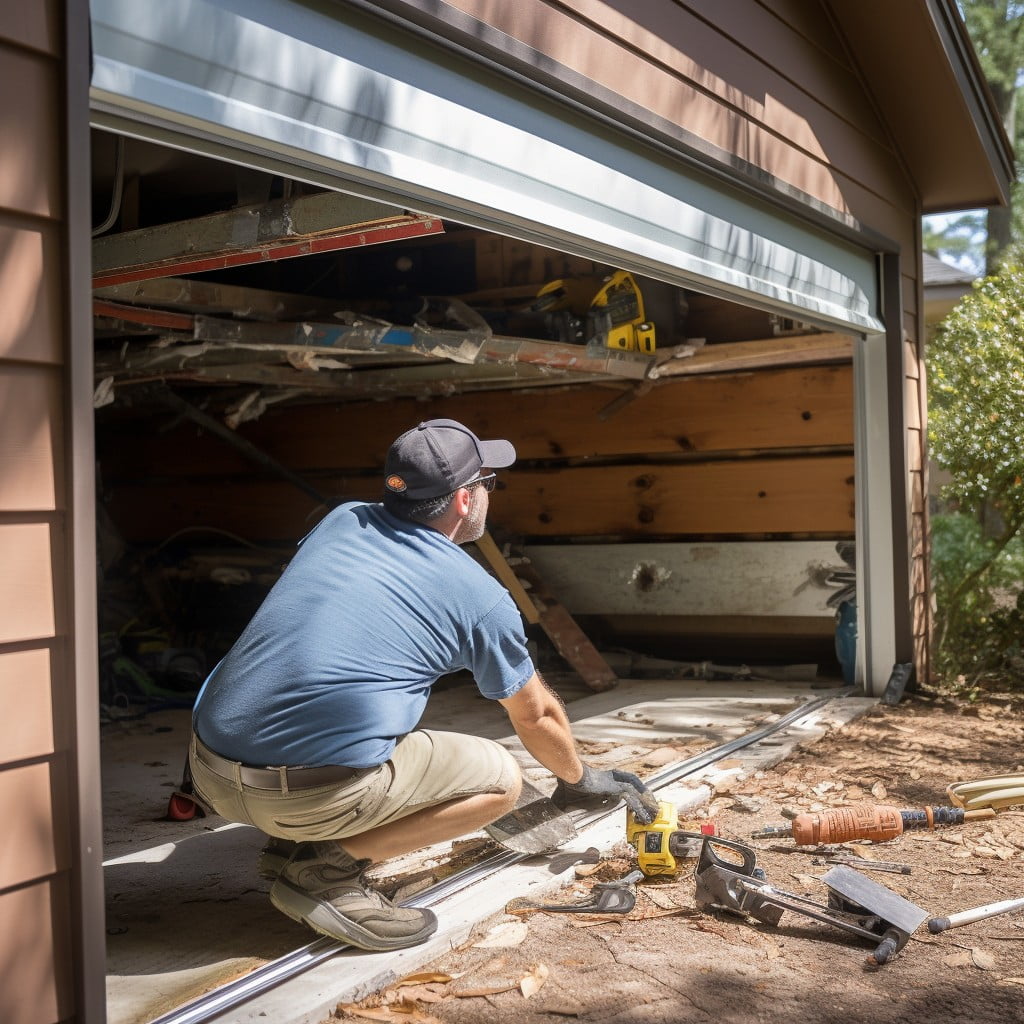
To keep your garage door in optimum working condition, regular monitoring is essential. Notice how it moves – it should be smooth, not jerky, and silent, not noisy. Listen for grinding or scraping sounds. Watch for a door that moves unevenly or one that doesn’t open or close completely. Observe the balance by disconnecting the opener and manually moving the door halfway up. If it doesn’t stay put, the counterweight system may be unbalanced, causing premature wear.
A visual inspection every six months can help spot rust, frayed cables, or broken strands on the lifting cables. Check the rubber seal at the bottom of your door – if it’s brittle or cracked, replace it to protect your garage from water damage and pests. Test the auto-reversing feature by placing a piece of wood on the ground where the door would close. If the door doesn’t reverse after contacting the object, call a professional garage door installer or repair technician.
Resolve minor issues before they become major problems. Prompt attention to any irregularities can help prolong the life of your garage door and avoid costly repair bills.
Understand Your Garage Door’s Warranty
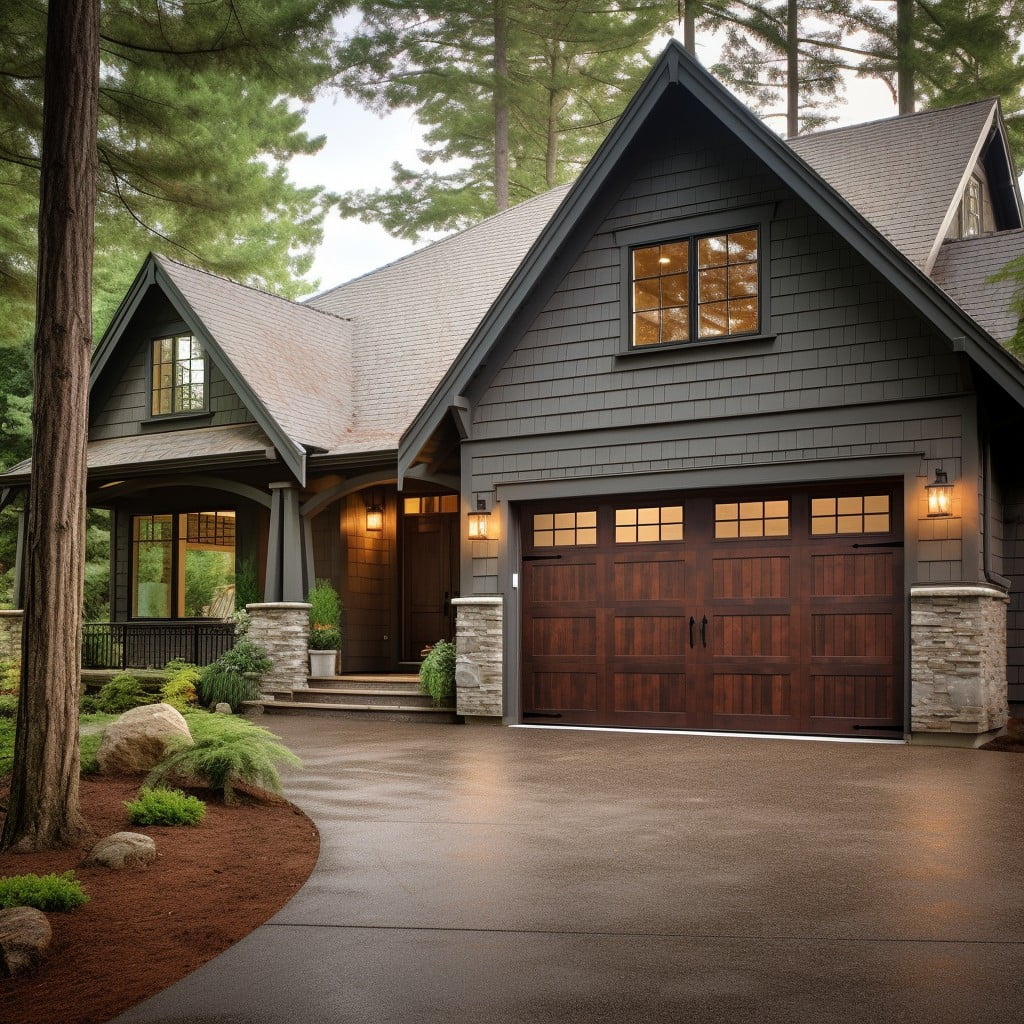
Knowing the details of your warranty can save you from unexpected expenses. Coverage varies significantly depending on the manufacturer and the model of your garage door. Most warranties cover the door panels for a period of 20 years to a lifetime, while hardware and springs can be covered for around three to ten years. However, these time frames can vary and are subject to certain conditions, such as proper maintenance, installation, and use.
Learning about the terms of your warranty is equally crucial. For instance, some warranties might be voided if you perform certain actions like specific types of DIY repairs. Make sure to review the fine print – if there are terms that you don’t understand, don’t hesitate to contact the supplier or manufacturer for clarification.
Take Care of the Exterior

Preserving your garage door’s exterior not only contributes to its aesthetic appeal but also extends its lifetime. Here’s how to achieve that:
1. Regularly Clean the Door: Using mild detergent and a soft brush, clear off dust, grime and other contaminants that can cause rust or damage the finish.
2. Repaint When Necessary: If the paint starts to peel or chip, consider repainting the door. This serves as a protective barrier against harmful elements. Remember to use a paint designed for exterior use and formulated for the door’s material.
3. Check for Damage: Regularly inspect the door for any signs of wear and tear. Look for dents, scratches or rust spots. Early detection of any damage will save costs and prolong the door’s life.
4. Reinforce the Seal: Ensure the weather seal at the bottom of the garage door is intact. If it’s broken or worn out, replace it promptly to prevent external elements from intruding inside the garage.
5. Protect Against Extreme Weather: In areas prone to extreme weather, consider investing in a weather-resistant finish or a storm-ready reinforcement kit. They offer added durability and protection, helping your external garage door withstand adverse weather conditions.
When to Replace an Old Garage Door
Understanding the right time to replace your garage door can save you from excessive repair costs and potential safety risks. Here are some key indicators:
- Excessive Noise: A sudden increase in noise level during operation may indicate problems with the motor, springs, or other components.
- Frequent Breakdowns: If your garage door requires constant repairs, it’s more economical to replace it with a new one.
- Outdated Design: If your garage door no longer matches your home’s style or shows signs of weathering and deterioration, it’s a good idea to replace it.
- Higher Energy Costs: Older garage doors may lack energy-efficient features. An upgrade could result in significant energy savings.
- Difficulty in Operation: If you notice the door is becoming harder to open and close, it may be time for a replacement.
Remember, it’s always worthwhile to consult with a professional if you’re unsure about when to replace your garage door.
Lifespan of a Garage Door Opener
Typically, the average lifespan of a garage door opener ranges between 10 to 15 years. This fluctuation largely depends on the quality of the opener, its maintenance schedule, and how frequently it’s used.
1. Quality: High-quality openers tend to last longer. Invest in reputable brands from trusted manufacturers to enjoy a prolonged lifespan.
2. Maintenance: Regular servicing can significantly extend the life of your garage door opener. This may include tightening loose components, lubricating moving parts, and replacing wore out pieces promptly.
3. Usage: Heavy use will naturally expedite wear and tear. Considering that, a garage door opener in a home setting not opened excessively in a day is likely to last longer.
Keep these factors in mind while estimating the lifespan of your garage door opener. Regular assessments can help you know when it’s due for a replacement before a failure inconveniences you.
FAQ
How often should garage doors be replaced?
Generally, garage doors should be replaced approximately every 30 years, but may need more frequent replacement due to accidents or severe damage from environmental factors such as windstorms.
How much should you spend on a garage door?
The cost of a new garage door ranges from $600 to $4,000, while replacing an existing one typically costs between $700 and $2,500, and common repairs fall in the $100-$600 range.
Do garage doors wear out?
Yes, garage doors do wear out, typically lasting between 15 and 30 years depending on factors like material quality, maintenance, and local climate conditions.
What factors impact the lifespan of a garage door?
The lifespan of a garage door is influenced by factors such as its material, usage frequency, maintenance practices, weather conditions, and the quality of its components like springs, cables, and rollers.
How to effectively maintain a garage door to extend its life?
To effectively maintain a garage door and extend its life, regularly inspect and lubricate moving parts, check and replace weather stripping as necessary, keep the track clean, and consider a professional service annually for a thorough check and maintenance.
Are there particular types or brands of garage doors known for their durability?
Steel garage doors from manufacturers like Clopay and Amarr are renowned for durability and low maintenance.